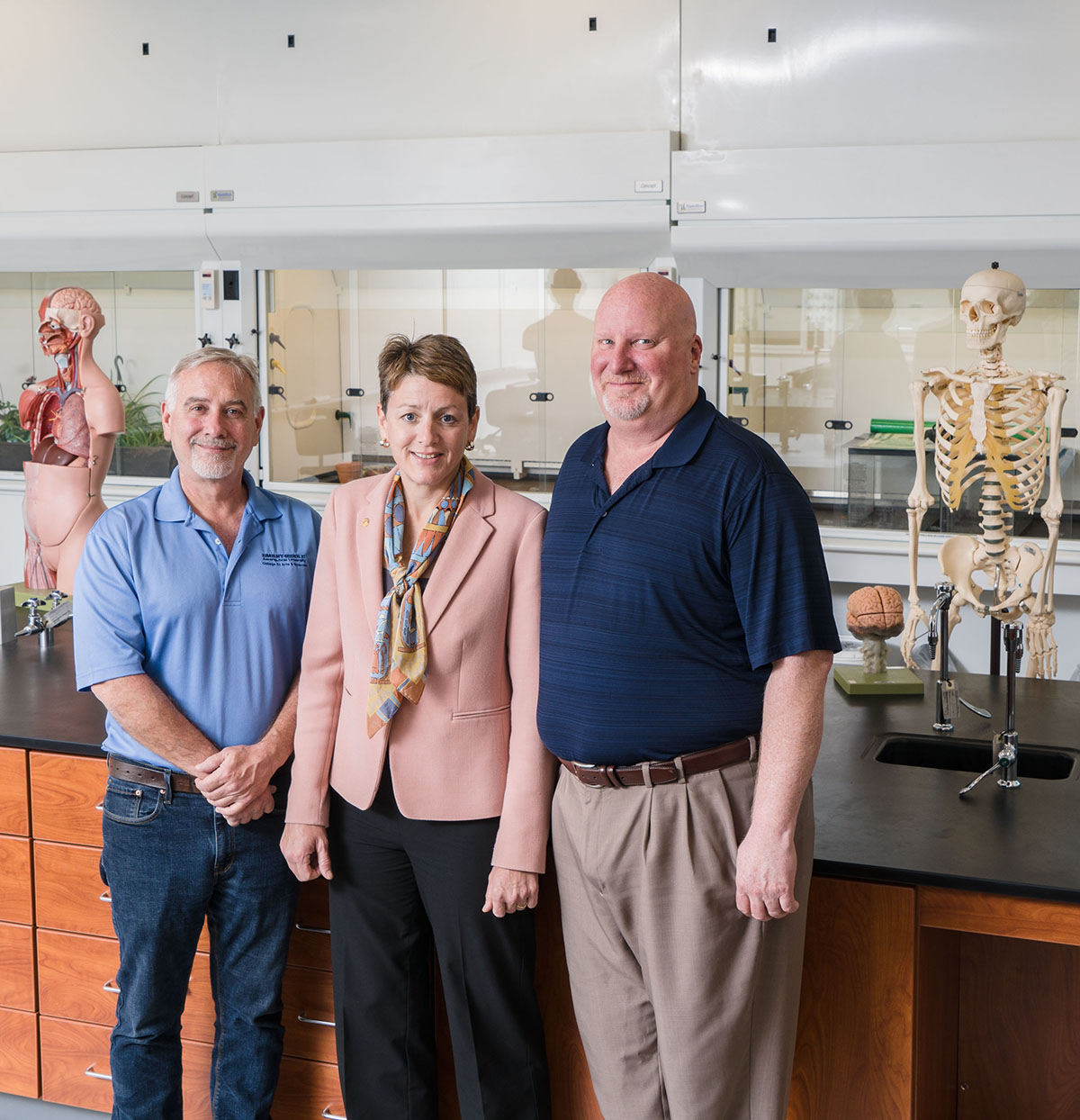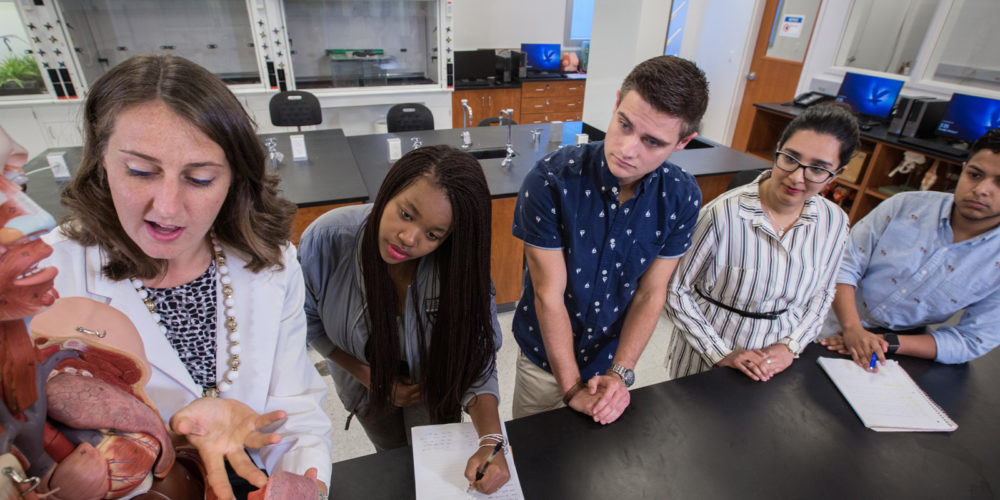Individuals seeking careers in medical research or those who want to improve the health and well-being of pilots, astronauts, flight crew members and air or space travelers, now have a degree program custom-made for them.
This fall, Embry-Riddle Aeronautical University’s Daytona Beach Campus launched a Bachelor of Science in Aerospace Physiology — believed to be the first undergraduate program of its kind in the nation.
The program offers real-world experience in clinical settings, thanks to a partnership between the university and six local Florida Hospital branches. Florida Hospital helped design the curriculum, which exposes students to advanced patient-care techniques and clinical instrumentation. Additionally, the hospital will provide two practicum clinical courses.
“An undergraduate degree in aerospace physiology from Embry-Riddle will put students on track to enter medical school or to pursue careers in the military and civilian sectors,” says Karen Gaines, dean of the university’s College of Arts and Sciences. “Studying cellular function in space can help advance scientific research, human healthcare and life on Earth.”

The program is supported both by a letter of commitment from Florida Hospital and a substantial gift from Florida-based philanthropist Helen M. Wessel, a longtime champion of higher education. Through her generosity, Embry-Riddle will establish a pivotal faculty position, titled the “Dr. Robert H. Wessel and Dr. Helen M. Wessel Endowed Chair for Aerospace Physiology.”
The new program greatly expands the university’s opportunities for research and development funding, including potential partnerships with Kennedy Space Center, NASA and others, Gaines says.
